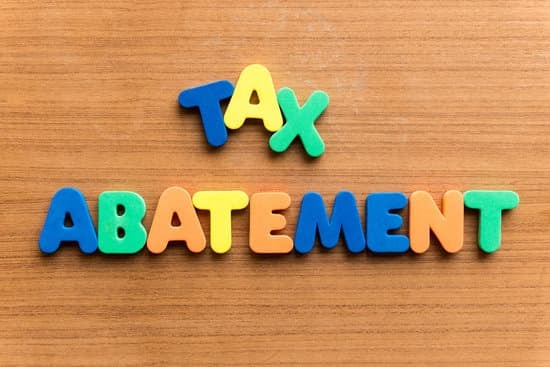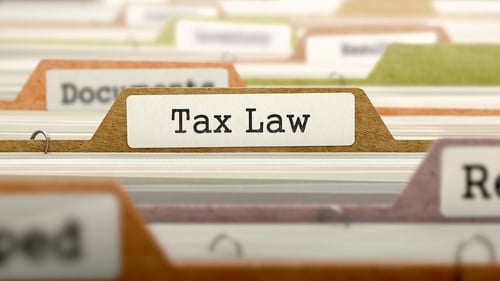Powell Tax Law Blog

Understanding IRS Penalty Abatement Standards
Some taxpayers may be surprised to learn that penalties assessed by the Internal Revenue Service (IRS) are not set in stone, and penalty abatement is a real possibility.
The sad truth, however, is that many taxpayers that run afoul of the myriad of nearly 150 penalties in the IRS complex tax code simply do not know that a penalty abatement is an option.
“If you have been assessed large penalties by the IRS and have a good excuse or reason why you were unable to comply with IRS rules, and you acted in good faith, you may qualify for a penalty abatement,” explained legal tax pro Steve Powell of Powell Tax Law. “Penalty Abatement can be used for both personal and payroll taxes.”
Of course, like most interactions with the IRS, inside knowledge and a complete understanding of the government’s penalty abatement standards can be key to getting optimal relief.
“Penalty abatement cases require a knowledge of the rules and regulations and a thorough understanding of what the IRS considers reasonable cause and good faith,” said Powell, whose firm has a track record handling the process and procedures required by the IRS in penalty abatement cases.
What is IRS Penalty Relief and What Penalties Are Eligible?
The IRS says that taxpayers may qualify for penalty relief if they tried to comply with tax laws but were unable due to circumstances beyond their control.
“If you received a notice or letter, verify the information is correct. If the information is not correct, follow the instructions in your notice or letter. If you can resolve the issue, a penalty may not apply,” says the IRS.
The IRS says that penalties eligible for relief include:
- Information Return: This may apply if information returns or payee statements are provided on time. IRS will mail Notice 972CG if you owe a penalty and charge monthly interest until you pay the full amount.
- Failure to File: This applies if you do not file your tax return by the due date. The penalty you must pay is a percentage of the taxes you did not pay on time.
- Failure to Pay: This applies if you do not pay the tax you report on your tax return by the due date or approved extended due date.
- Accuracy-Related: This applies if you underpay the tax required to be shown on your return. Underpayment may happen if you do not report all your income or you claim deductions or credits for which you do not qualify. The IRS applies two common accuracy-related penalties on individuals: negligence or disregard of the rules or regulations, and substantial understatement of income tax.
- Failure to Deposit: This applies to employers that do not make employment tax deposits on time or in the right amount or in the right way. Employer-paid taxes include federal income tax, Social Security and Medicare taxes, and Federal Unemployment Tax.
- Dishonored Check: The dishonored check or other form of payment penalty applies if you do not have enough money in your bank account to cover the payment you made for the tax you owe.
- Underpayment of Estimated Tax by Corporations: This applies to corporations that do not pay enough estimated tax payments or pay them late. The penalty may apply even if the IRS owes the corporation a refund.
- Underpayment of Estimated Tax by Individuals: This applies to individuals, estates, and trusts that do not pay enough estimated tax on income or pay it late. The penalty may apply even if the individual or entity is owed a refund.
- Other penalties as applicable.
The Different Types of IRS Penalty Relief
The IRS breaks down penalty abatement into three types of penalty relief depending on the penalty:
- First Time Penalty Abate and Administrative Waiver: Taxpayers may qualify for relief from a penalty by administrative waiver if it is their first tax penalty or they meet other criteria allowed under tax law. Penalties eligible for first-time abatement include:
o Failure to File: Tax returns, partnership returns, and S corporation returns.
o Failure to Pay: Shown on the return is not paid by the due date or required to be shown on a return but was not, and that tax was not paid by the date stated in the notice or demand for payment.
o Failure to Deposit: Was not deposited in the correct amount, within the prescribed time period, and/or in the required manner.
- Reasonable Cause and Good Faith: Taxpayers may qualify to have certain penalties removed or reduced if they acted with reasonable cause and in good faith. Reasonable cause is determined on a case-by-case basis considering all the facts and circumstances of the situation. Reasons that qualify for relief due to reasonable cause depend on the type of penalty owed and the laws in the IRS code. Reasonable cause does not apply to certain penalties such as the estimated tax penalty. For businesses, the reasons apply to the person with authority to submit the tax return, deposit, or tax.
- Statutory Exception: Taxpayers may qualify for penalty relief under certain statutory exceptions allowed by tax law. Common statutory exceptions include:
o Relied on incorrect written advice from the IRS.
o Mailed a return on time.
o Lived in a federal disaster area.
o Was involved in military operations in a combat zone.
More on Reasonable Cause and Good Faith for Penalty Abatement
Reasonable cause and good faith can be key terms when it comes to IRS penalty abatement.
“You may qualify for penalty relief if you demonstrate that you exercised ordinary care and prudence and were nevertheless unable to file your return or pay your taxes on time,” says the IRS.
The IRS cites the following valid reasons for failing to file or pay on time as examples:
- Fires, natural disasters, or civil disturbances.
- Inability to get records.
- Death, serious illness, or unavoidable absence of the taxpayer or immediate family.
- System issues that delayed a timely electronic filing or payment.
There are other reasons that the IRS will not accept as “reasonable cause” or “good faith” for failure to file or pay a tax on time including:
- Reliance on a tax professional: You're generally responsible for complying with tax law even if someone else handles your taxes. You should know what your tax preparer files and get proof that your return or payment is sent on time.
- Lack of knowledge: You're responsible for knowing or getting advice on how to file returns and pay or deposit taxes on time. This includes filing requirements, deadlines, and amounts you owe.
- Mistakes and oversights: You're responsible for making sure your tax returns, payments, and deposits are correct and on time. In certain cases, reasonable cause may apply to a mistake if additional facts and circumstances show that you tried to comply with tax law.
- Lack of funds: By itself, lack of funds is not a reasonable cause for failing to pay or deposit taxes due. However, you may qualify for relief based on other facts and circumstances that show you used reasonable care and tried to comply with tax law.
Accuracy-Related Penalties and Abatement
If you received an accuracy-related penalty, you may qualify for penalty relief if you acted with reasonable cause and good faith. To determine whether you qualify, we consider factors including:
- Efforts you made to report the correct tax.
- The complexity of the tax issue.
- Your education, experience, or knowledge of tax law.
- Steps you took to understand your tax obligation or seek help from a tax advisor.
If you relied on a tax advisor, the IRS may consider:
- Whether you provided all the needed information.
- Whether your advisor was competent and experienced with the tax situation.
Information Return Penalties
If you can show reasonable cause for failing to file accurate, timely information returns or payee statements, the IRS may consider penalty relief if you prove:
- You acted in a responsible manner both before and after the failure by having:
o Requested extensions of time to file when possible.
o Tried to prevent a foreseeable failure to file on time.
o Fixed any issues causing the failure.
o Corrected the failure as quickly as possible.
- Along with acting in a responsible manner, you must also prove there were significant mitigating factors with respect to the failure or the failure happened due to events beyond your control such as:
o First-time filer of the particular form or statement.
o Good compliance history.
o Actions by the IRS.
o Actions of an agent.
o Actions of another person.
o Access to relevant business records.
o Economic hardships that prevented electronic filing.
While the IRS may reduce or remove some penalties over the phone, taxpayers have found it increasingly difficult to reach the IRS since the start of the pandemic -- with only 11 percent of calls reaching an IRS customer service representative.
For help in penalty abatement, contact Powell Tax Law today for a free consultation about your specific case and how you might best seek IRS penalty relief.







